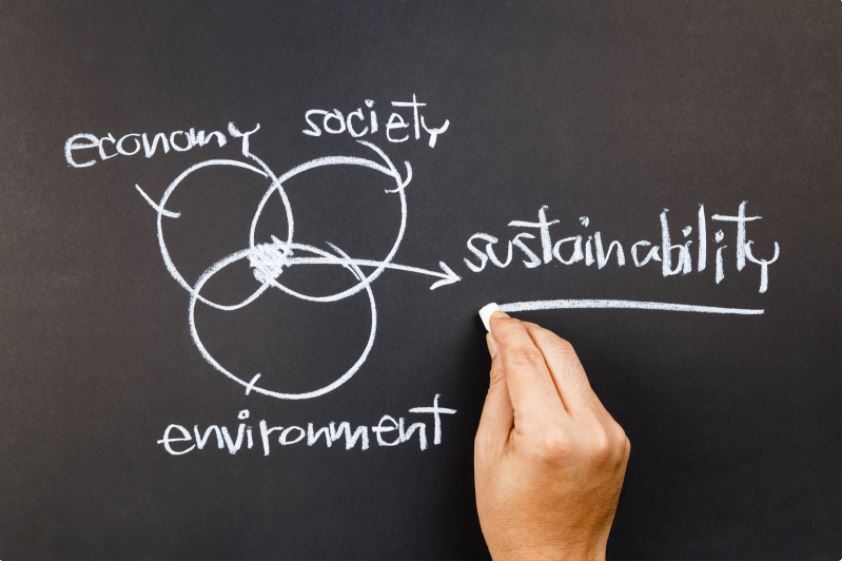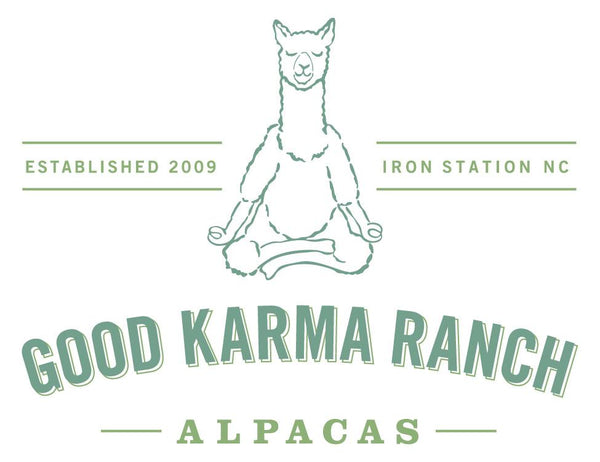
No perfect plan, but plan to do good
Share
I had plans in January that on April 1st, in celebration of Earth Month, we would share with all of you a grand plan highlighting our farm’s current sustainability practices, our current environmental policy, and launch our business’s sustainability plan to do better in the years ahead. We know what we want to do, how we want it all to look, and why it matters.
To get the plan down on paper is one thing. To bring the plan to life is taking time and investment in learning. This process includes looking into what sustainable brands we admire are doing: Allbirds, Patagonia, Cotopaxi and the realization everything we wanted to do wouldn’t be done by April 1st. I adjusted my goal giving us a few more weeks to work making a new goal: share our plans on Earth Day, April 22nd.
Problems with making any kind of announcement still persisted in my head: We are not there yet. We are not ready. What we have is not enough to warrant any type of communication to our customers. We have been working on our farming practices for over 15 years and we believe that our farming practices are sustainable. We are running 100% on solar, practicing rotational grazing and composting and raising arguably the world’s most sustainable livestock animal. The area for greatest improvement to be more sustainable is in the retail/textile portion of our business and we want to start with traceability of our products and that is our area of focus currently.
With April 22nd quickly approaching I considered waiting to share something because I didn’t have everything. Then I heard one of my mentors in my head, “Progress over perfection Shelly.” While we still have a lot of goals we want to accomplish to make our business even more sustainable, I am going to share with you what we’ve done so far, where we are falling short for full transparency, what we still need to figure out, and why we won’t ever be DONE.
First, why does this even matter?
The fashion industry and the farming industry contribute greatly to the pollution of the earth. We are involved in both industries. We, therefore, are part of the problem. The processes used to make clothes emits 2-billion tons of CO2 per year, or 10% of all man-made carbon emissions. That is more than all international flights and maritime shipping combined. The $1.5 trillion global fashion industry is growing at an extremely fast rate doubling since 2000. On top of that, people are keeping their clothes half as long and 85% of the discarded clothing and textiles end up in a landfill. 70% of the clothing you wear can’t break down in that landfill because it is made of fossil fuels. Yes, fossil fuels. Did you realize polyester is plastic? I didn’t and it is found in 70% of all clothing on the planet. This hasn’t always been the case (only the past 80 years or so) and we need to reverse the cycle and once again include much more natural fiber in our clothing. This is an area that we can change. As frustrating as it is, companies look to consumers to “do the right thing” and recycle their plastic or refuse the plastic shopping bag. We feel differently. We feel COMPANIES should be doing more to provide items to consumers that are sustainable and take responsibility for what is being produced and how it is produced. This is what we want to do. No matter how small we may be, we can do our part to offer textiles to our customers that are sustainable, traceable, and will last for years.
What we’ve done so far:
Written environmental policy for the farm.
100% solar powered business.
Composting.
Rotational grazing.
Choosing the most sustainable livestock animal available.
Begun work on traceability/transparency of our textile products and adding it to our website.
Moved to all reused, recycled, or eco-friendly shipping materials (boxes, tape, labels, packing).
Where we fall short:
Website layout to better explain traceability and sustainability and our efforts in these areas.
Social media messaging on sustainability and what we are doing and still need to do.
Continue to get more detailed information on traceability of our products.
What we want to still figure out:
B corp.
Carbon buy-backs.
Taking back textiles purchased from our store when consumers no longer want them or if they get damaged and upcycle them or repair and donate them. Patagonia has a program like this and we love the idea.
Understand what matters most to our customers about sustainable fashion.
Why we will never be done or ready to announce a perfect plan?
We won’t ever be done because this will continue to be a fluid program in need of a fluid plan. It also won’t ever be perfect because it’s just 2 people without business degrees or marketing degrees or science degrees working to make our lives, our farm, and our textile business more sustainable as quickly as we can learn, improve, and implement.
Our business is so small, that we will not make huge impacts on the planet as a whole, but we will keep pushing to do better and to encourage others to start to ask questions and to seek out companies that are doing good for the planet and its people. There is no perfect plan, but there is a plan to do better and put good karma out into the world.

2 comments
Continuous progress is realistic and will keep you moving, adapting more easily to changes happening around you. Great work, thank you!
Thank you, Shelly, Mike and Ryan for the incredible work you’re doing and the outstanding effort to change the pattern of waste and disposability. I’m so proud to call you my friend and colleague and deeply grateful for all that I learn from you!
Every step in the right direction changes the outcome and I will commit to continue to walk in the direction of good!